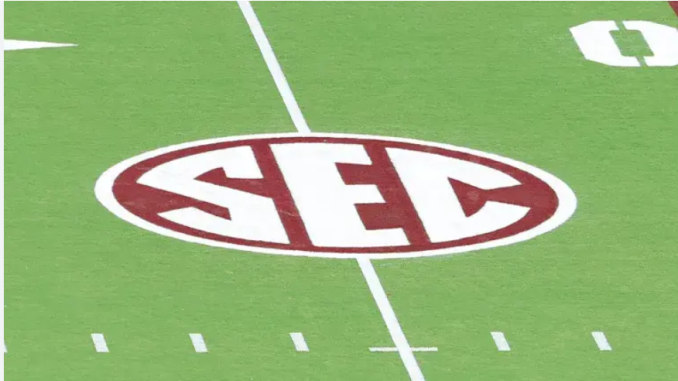
The Southeastern Conference’s recent overhaul of its football scheduling, which eliminated the annual status of the legendary Alabama-LSU rivalry for the first time in six decades, has ignited a high-stakes legal battle. Sources within both athletic departments confirmed late yesterday that the universities of Alabama and LSU have delivered strongly worded letters to the SEC Office, threatening formal legal action if the conference does not restore their annual matchup, which has historically been played in November with immense national significance.
The conflict stems from the SEC’s announcement of a new nine-game conference schedule starting in 2026, which designated only three permanent annual opponents for each of the 16 member schools.
Alabama’s permanent rivals were chosen as Auburn, Tennessee, and Mississippi State, while LSU’s were Arkansas, Ole Miss, and Texas A&M. The exclusion of the Alabama-LSU “Game of the Century” from the annual slate—a game played every year since 1964—was an immediate shockwave across college football.

“The decision effectively diminishes a generational, revenue-generating pillar of this conference,” stated a representative for a high-level donor group at the University of Alabama, who spoke on the condition of anonymity.
“This is not just about tradition; it’s about the economic value and recruiting advantage that a marquee, annual late-season game provides. We believe the SEC’s justification for competitive balance is arbitrary and demonstrably harms our brand.
The Legal and Financial Stakes
The threatened lawsuit reportedly centers on two key legal arguments:
Breach of Good Faith and Fair Dealing: The universities may argue that the conference’s decision violates an implied covenant to act in good faith by arbitrarily disrupting a financially and culturally significant relationship without a compelling and non-pretextual competitive justification.
Harm to Intangible Assets and Revenue Streams: The lawsuit could seek to quantify the financial loss resulting from the elimination of the annual rivalry. Alabama-LSU is consistently one of the highest-rated games in college football, generating massive broadcast, ticket, and sponsorship revenue. Moving it to an every-other-year rotation disrupts these predictable revenue streams and diminishes the value of the season-ending schedule slot.
For LSU, the loss is particularly sensitive. The annual November contest against a top-ranked Alabama team was the single greatest driver of season-ticket sales and booster contributions.
“We understand the need for a balanced schedule in a 16-team league, but balance should not come at the expense of our most historic and profitable rivalries,” said a source familiar with LSU’s position. “The Iron Bowl was protected, the Third Saturday in October was protected, the Red River Rivalry was protected. Why was the SEC West’s defining game sacrificed?”
SEC Commissioner Greg Sankey has defended the new format, stating it was designed to achieve “competitive fairness” and ensure a “more robust schedule” for all schools in the expanded College Football Playoff era. The new model ensures every school will play every other school at least once every two years.
However, the threat of an intra-conference legal battle marks an extraordinary fracture in the SEC. It pits two of the league’s most powerful brands—who have combined for five national championships since 2009 directly against the conference office and, by extension, the other 14 member institutions that approved the new schedule.
The two schools are demanding an emergency meeting of the SEC Presidents and Chancellors to re-evaluate the protected opponent list. Should the conference stand firm, the “Civil War” will move from the gridiron to the courtroom, potentially creating a costly and distracting precedent for the most powerful conference in college sports. The fate of one of college football’s fiercest rivalries now rests not with a Hail Mary, but with a legal brief.



Be the first to comment